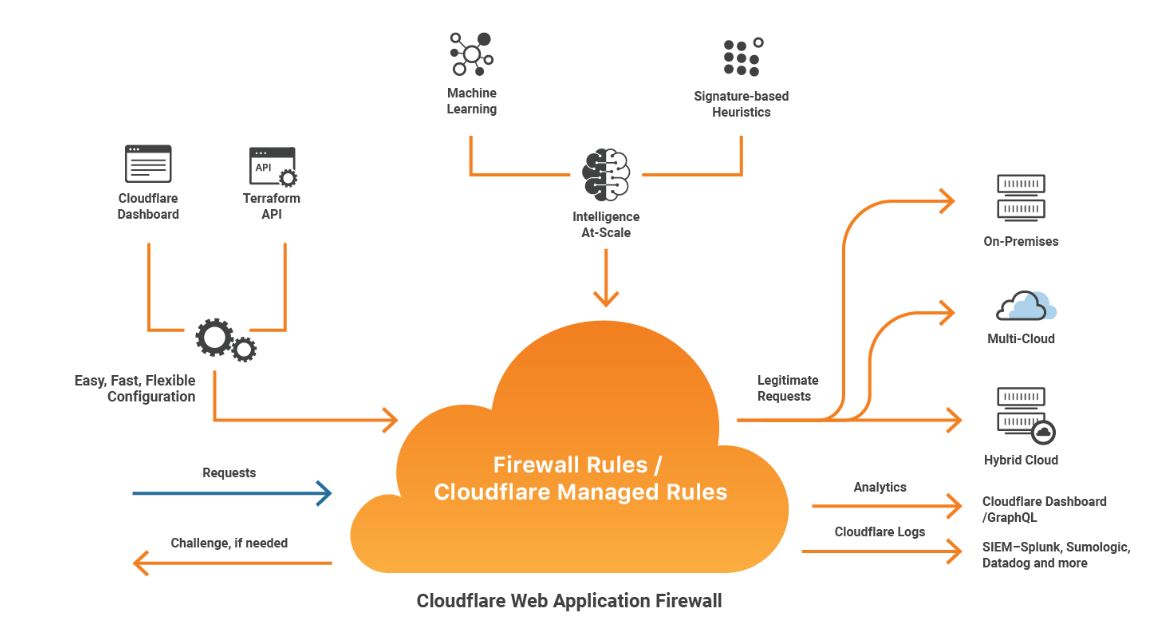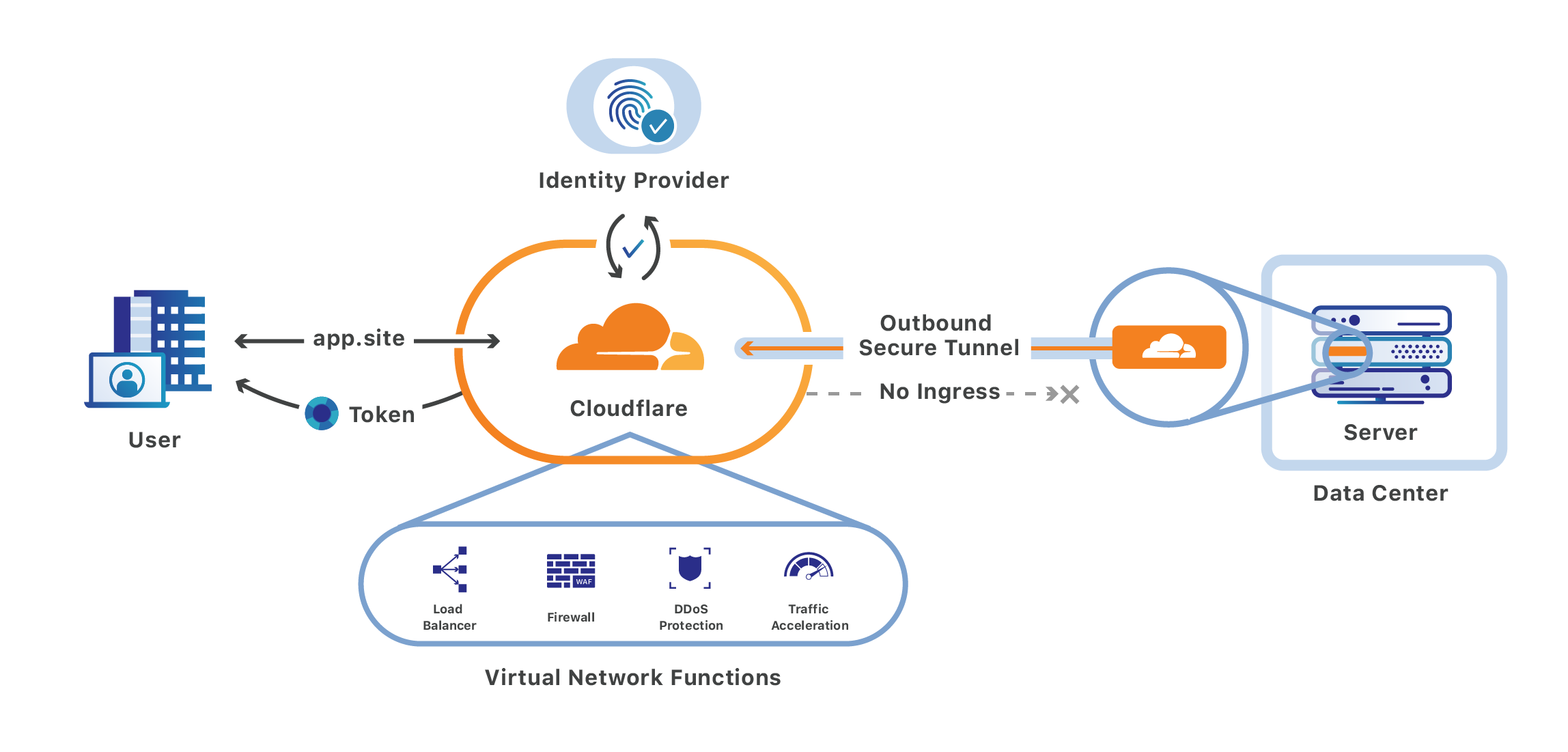
What makes Cloudflare special?
In a thriving and serene environment, there is always a need to ensure control measures to mitigate the possible intrusion of unwanted access. This sentence is multifaceted as it cuts across not just my banking experience but also general security for the household. It would be better to be wise by fortifying security than to be foolish and complacent when an intrusion that prompts the loss of valuables occurs.
The digital space has continually grown after the third industrial revolution, and as a growing global village, there is a need to include caution and control how access to data packets is accessed. In this post, I will share with you an interesting topic called Cloudflare. You will learn what it means, what makes it special, and how people see it.

What is Cloudflare?
Cloudflare is a company that provides a content delivery network (CDN) and distributes domain name server services, sitting between a website's visitor and the Cloudflare user's hosting provider and acting as a reverse proxy for websites.
Its network protects, speeds up, and improves availability for a website or application with a change in DNS. Cloudflare also provides various other services, such as DDoS protection, web application firewalls, SSL/TLS encryption, and analytics.
What Cloudflare is used for?
Cloudflare is used to improve the performance and security of websites and web applications. Its network of servers acts as a middleman between a website's visitors and the hosting provider, caching content and blocking malicious traffic before it reaches the original server.
This act can result in faster load times for visitors and reduced strain on the original server. Additionally, Cloudflare provides several security features, such as a web application firewall, DDoS protection, and SSL/TLS encryption, to help protect against common web-based attacks.
Where has Cloudflare found applications?
While Cloudflare enjoys several reasons for use, some of the most popular applications remain:
- CDN (Content Delivery Network): Caching and serving content closer to users to improve load time.
- DDoS Mitigation: Protecting against Distributed Denial of Service (DDoS) attacks.
- Web Application Firewall: Protecting against common web-based attacks like SQL injection and cross-site scripting (XSS).
- SSL/TLS: Encrypting communication between a website and its visitors to protect against eavesdropping.
- Analytics and monitoring: tracking and analyzing website traffic to help identify potential security issues and improve performance.
- Domain Name Server Services: providing DNS resolution for custom domain names.

Why is Cloudflare preferred compared to others?
Cloudflare is preferred by many businesses and individuals because it offers a wide range of features at a relatively low cost.
Its free plan includes many of the basic performance and security features, making it accessible to a wide range of users. Additionally, Cloudflare's network is one of the largest in the world, with data centers located in over 200 cities, which can help improve the performance and availability of a website for visitors around the globe.
Furthermore, Cloudflare provides many advanced features, such as its Web Application Firewall (WAF) and DDoS protection, which can help protect against a wide range of potential threats. It also offers a user-friendly control panel with detailed analytics and reports. Additionally, it supports a wide variety of platforms and technologies, making it easy to integrate into existing web infrastructure.
Is Cloudflare free?
Yes, Cloudflare does offer a free plan for individuals and small businesses. This plan includes many of the basic performance and security features provided by Cloudflare, such as content delivery, DDoS protection, and SSL/TLS encryption.
The free plan also provides access to Cloudflare's analytics and basic WAF rule set, with more detailed analytics and additional WAF customization options available with paid plans. However, there are certain limitations with the free plan, such as the number of page rules and automatic image optimization, which may require upgrading to a paid plan for certain usage.
Additionally, certain advanced features like WebSocket support, dedicated IPs, and origin CA certificates are available only on paid plans.

Conclusion.
Cloudflare provides a variety of performance and security services for websites and web applications. Its services range from the content delivery network (CDN) to distributed domain name server services, DDoS protection, a web application firewall, SSL/TLS encryption, and analytics.
By using Cloudflare, website owners improve the performance and availability of their websites for visitors and protect against a range of potential threats. Cloudflare offers a free plan and paid plans that come with additional features and customization options. The company's network is one of the largest in the world, with data centers located in over 200 cities.
This article has been made possible by The Watchtower London, a leading brand in Digital Marketing and Web design/development.
Feb 04, 2023 by oluwafemi-smith 2.4K Views
Share This Post :
 Facebook
Facebook
 Twitter
Twitter
 Linkedin
Linkedin
 Telegram
Telegram
 WhatsApp
WhatsApp
 Pinterest
Pinterest


